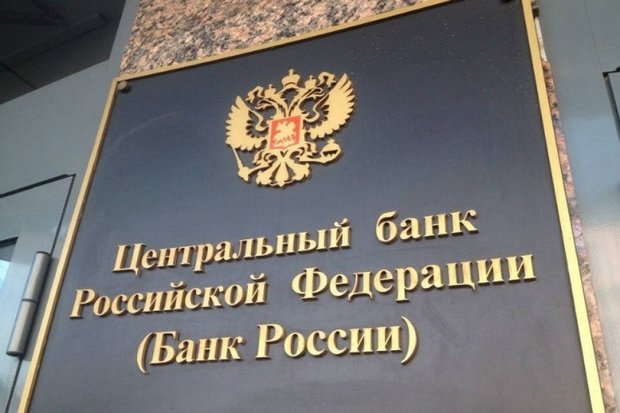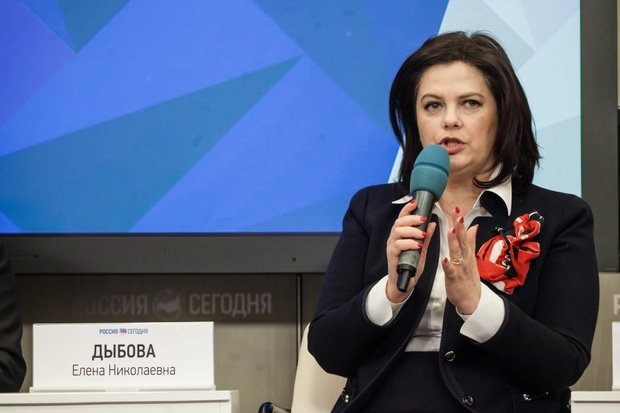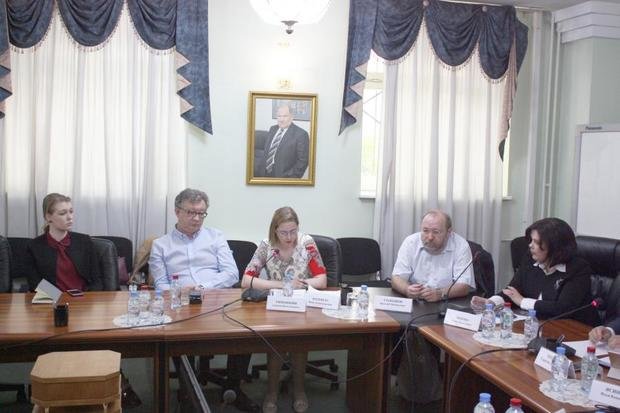''Business does not want to communicate with banks, it wants to send the payment and see it executed''
About how the Central Bank of Russia and experts argued about the massive blocking of accounts and lists of suspicious customers
On May 14, the Association of Russian Banks (ARB) held a round table discussion on the problem of mass blocking of bank accounts of entrepreneurs. After the tightening of anti-money laundering legislation and the emergence of black lists of customers, about 1 million individuals and companies have become victims of blocking. About how experts convinced representatives of the Central Bank and Rosfinmonitoring that the world consists not only of ''supporters of terrorism'' — read in the material of Realnoe Vremya.
Blocking just in case
It was not difficult to describe the whole severity of the problem — it was enough for President of ARB Garegin Tosunyan to name only one figure: from the beginning of 2017, banks have blocked almost 1 million accounts of individuals and legal entities.
The blocking acquired massive character about a year ago. It all started with the CB regulation on black lists of clients (officially — the regulations of July 20, 2016 No. 550-P). According to him, the Central Bank began to send out information about doubtful, from their point of view, customers to banks. Potentially dubious were considered persons or companies to whom banks had previously denied the transactions or the conclusion of a contract. The regulation described the mechanism for data exchange on such clients between credit institutions, the regulator and Rosfinmonitoring.
Last summer, banks began to receive lists containing tens of thousands of allegedly suspicious firms and individuals. The Central Bank explained that the lists were not a guide to action, but only additional information. Nevertheless, Tosunyan said, the banks ''ended up between hammer and anvil'' and began to refuse customers from the list ''just in case — to protect themselves''.
On March 30, amendments to the anti-money laundering legislation came into force – there appeared a mechanism for rehabilitation of clients who were blacklisted unreasonably, as well as a two-level system of appealing against blocking (in the bank itself or through a special commission of the Central Bank).
''We are looking for a solution, not culprits,'' said the head of ARB. Then he gave the floor to Ilya Yasinsky, deputy director of the department of financial monitoring and currency control of the Central Bank.

''It turned out as it turned out''
Yasinsky acknowledged that the initiator of the black list exchange was the regulator. At some point, the Central Bank came to the conclusion that the existing system of combating money laundering was able to respond only to the already accomplished facts. Therefore, it was necessary to make it more preventive — and give the banks appropriate mechanisms.
The Central Bank proceeded from the fact that only the credit institutions themselves thoroughly know their customers — all the information about them ''for objective reasons, neither the Bank of Russia nor financial intelligence know''. Accordingly, Yasinsky explained the logic of the regulator, only the bank itself, having analyzed all the data, can decide whether to refuse a client or not.
At first, banks paid little attention to the new powers, but under pressure from the Central Bank they began to use them more often. According to Yasinsky, previously, to react to a questionable operation, the bank needed several months. Because of this, so-called ''migrating customers'' appeared: when one bank had suspicions, they simply went for service to another — and managed to carry out new operations until the next bank noticed that something was wrong. ''In the conditions when, as you know, we still have a few hundred credit institutions, it is clear that the circulation of doubtful customers could continue indefinitely,'' said the representative of the Central Bank.
According to him, before putting into practice black lists, the regulator assessed possible variants of development of events. There were two: having gained access to the lists, banks will either begin actively use them and the number of failures will increase, or they will be extremely cautious to exercise new powers, understanding all the risks.
''But the third scenario has been realized, strangely enough. Which is that nothing serious really happened. At least, dry statistics states this,'' Yasinsky said. He said that compared to 2016, the average daily number of rejections in operations has not increased. Moreover, it is gradually decreasing.
The representative of the Central Bank confirmed that the presence of a client in the black list is not a sufficient reason to block the account and not to carry out orders. ''But it turned out as it turned out,'' he added. ''Indeed, they began to receive complaints from the business community, especially it concerns micro- small and medium-sized businesses. The Bank of Russia actively worked with these complaints. Given the fact that this topic was actively taken up by the media, there was a need to bring the situation in an even more regulated level (to create a mechanism for rehabilitation — editor's note).''
At the same time, the commission for bank complaints at the Central Bank, according to Yasinsky, has not received any applications yet.

''Not to die on the way''
Yasinsky was opposed by several invited experts. One of them was Vice-President of the Chamber of Commerce and Industry of the Russian Federation Elena Dybova. ''Mr Yasinsky was saying so much in detail that I, frankly speaking, after some time began to lose the severity of the problem under the hypnosis of the Central Bank, with which I came here,'' she said.
Indeed, Dybova agreed, the lists of the Central Bank are only recommendations. However, the problem is that banks are ''all obedient, no one wants to stay without a license.''
Today, according to the Federal tax service, in Russia there are more than 6 million small and medium-sized businesses, most of them are micro businesses. As a rule, these companies employ less than 15 people, and an average of about three. This means that the Vice President of the Chamber of Commerce and Trade said that most companies simply do not have the time and resources to prove their conscientiousness to banks.
Another stumbling block is addresses of mass registration. In the absence of a well-established commercial real estate market, many entrepreneurs do not work where they are registered. ''Does this mean that they are all supporters of terrorism? You and me understand that it is not true!'' Dybova said. But, despite all the talk that you should not be tied to a legal address, the address of mass registration remains a reason why it [a bank] will not talk to you.'' ''What does that mean? This means that in Moscow the cost of a legal address has risen from 10,000 to 60,000,'' she continued.
''Instead of finding this audience that is engaged in illegal activity, they actually made guilty everyone. But the president has set a clear goal: from 20 to 40 percent [to increase the share of small and medium-sized businesses in GDP]. How are we going to do if the environment in which our businesses are living is becoming toxic at times?'' Dybova asked.
''While gaining experience, it is necessary not to die on the way,'' Tosunyan supported her.

''Rehabilitation of whom? Anyone judged them?''
Inna Rodriguez, chirperson of ARB committee on combating money laundering and terrorism financing, noted that the banks themselves were in an unenviable situation. In fact, they are faced with a choice: to remain without customers or without a license. Rodriguez called the businesses to communicate more closely with banks to avoid misunderstandings.
Dybova objected her, ''Banks are now being engaged in making the businesses to communicate with them. The business does not want to communicate with banks, the business wants to send a payment, see it executed within an hour and continue to work.''
Vasily Solodkov, the president of the Banking Institute at HSE, spoke categorically: it is permissible to block accounts and refuse to conduct operations only by a court decision, he believes. Solodkov said that the Constitution of Russia contain answers to many questions and explained that it tells about the presumption of innocence. ''From this point of view, any federal law that questions the presumption of innocence is invalid. Unfortunately, we do not see a lot of such laws. The Constitution says that this is a law of direct action. That is, any law that is contrary to the current Constitution has no right to exist. If we keep this in mind, we will not have any questions about a rehabilitation commission. Rehabilitation of whom, excuse me? Anyone judged them?''